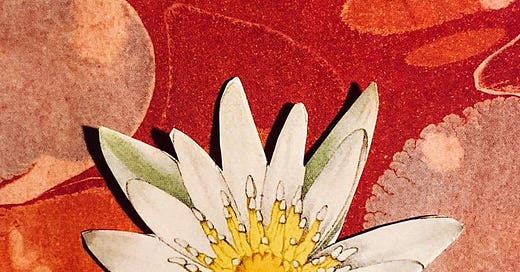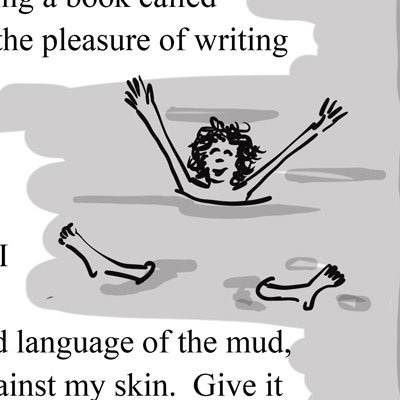No Mud, No Lotus
No pain, no gain. No rain, no rainbow. No brussel sprouts, no banoffee pie.
I asked my new writing buddy Bing (dubbed ChattieG by my brilliant colleague Inger Mewburn) to produce a list of "no this, no that" phrases, for example:
No risk, no reward.
No guts, no glory.
No practice, no perfection.
At first glance, the meaning of these platitudes seems as obvious as their structure. You have to break eggs to make an omelette. What doesn’t kill you makes you stronger. No bad thing, no good thing.
The "no this, no that" formula isn't necessarily that simple, however – or simplistic. In his classic book No Mud, No Lotus: The Art of Transforming Suffering, the Zen Buddhist monk Thich Nhat Hanh describes suffering and happiness not as oppositional emotions but as two parts of a complex, dynamic whole:
Both suffering and happiness are of an organic nature, which means they’re both transitory; they are always changing. The flower, when it wilts, becomes the compost. The compost can help grow a flower again. Happiness is also organic and impermanent by nature. It can become suffering and suffering can become happiness again.
The mud and the lotus need each other. No mud, no lotus. No lotus, no mud.
And what's so bad about mud, anyway? In this image from my book Writing with Pleasure, I've surrendered to the sticky mud of too much data, my hands waving joyfully in the air, a gleeful smile on my face. No mudbath, no playful wallow.
Here's an exercise that you can try yourself on days when the mud of your writing is sucking you down and the lotus of fulfilment is nowhere in sight:
(1) Generate a list of "No bad thing, no good thing" metaphors to describe your writing practice – the more colorful and creative, the better.
(2) Untangle the syntactical logic of each metaphor. Does the second item actually requirethe first in order to exist? For example:
No pain, no gain - While pain may be part of a generative writing process, gains can also be made without pain.
No rain, no rainbow - While rainbows are linguistically associated with rain, there are much easier and more reliable ways to produce them than by waiting for rainfall on a sunny day. You can shine a light through a prism, for example, or draw a rainbow using colored pencils.
No brussel sprouts, no banoffee pie - While many a child has heard some version of the dreaded phrase "Eat your vegetables, or you won't get any dessert," there is no intrinsic reason why the consumption of a sweet confection should require a gemmiferous cabbage as a starting course.
(3) Finally, test the emotional mettle of your metaphors by replacing each "no" with an optimistic "yes": Yes pain, yes gain. Yes rain, yes rainbow. Yes brussel sprouts, yes banoffee pie.
I'm not so keen on the idea of yes pain – I may need Thich Nhat Nanh's book to get me through that part! – but can accept all the other words on this list as part of a generative writing process. Yes pleasurable progress; yes refreshing rain; yes exhilarating rainbows; yes nutritious brassica; yes sweet banoffee pie.
Yes mud. Yes lotus.
And yes yes yes to writing with pleasure!






